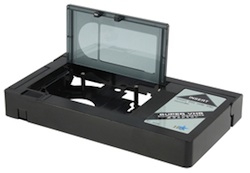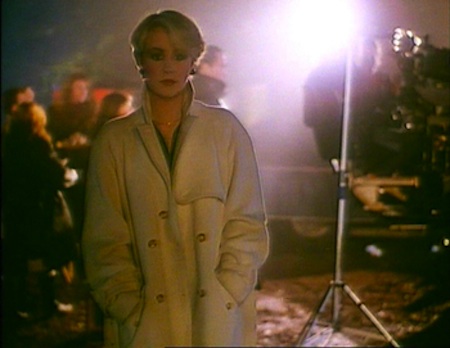JAPAN: Panasonic stops and ejects VCRs from its domestic range
Panasonic has stopped making VHS recorders for the domestic market, will only make some machines for export


After around 35 years of production, Panasonic has finally called a halt to the VHS video recorder. It stopped making machines for the Japanese domestic market at the end of 2011, and when existing stocks run out sales will end.
Panasonic had been making small batches of VCRs in various overseas factories to serve those enthusiasts with large tape collections, but now – apart from the odd model for sale in export markets – it's out of the VHS game.
It started making VHS – Video Home System – hardware in 1977, a year after the first machines were launched by the originator of the format, JVC. At the time JVC was a subsidiary of Panasonic.
After one of the most protracted consumer electronics format wars, VHS saw off the challenge from Sony's rival Betamax system, principally by wooing movie rental outlets, and those offering hardware rental, rather than on technical grounds.
By 1988, Sony was making its own VHS video recorders.
VHS went on to be a major seller for Panasonic and its JVC subsidiary, and the massive income from royalty payments as other companies adopted the technology played a major part in the growth of the company.

VHS spawned the VHS-C camcorder format, which used a miniaturised cassette for portability, able to be played back in a standard domestic VCR using an adapter cassette the size of standard VHS tape.
Get the What Hi-Fi? Newsletter
The latest hi-fi, home cinema and tech news, reviews, buying advice and deals, direct to your inbox.
VHS-C again found itself locked in a format battle with another Sony system, Video 8, and this time neither format won out, the two co-existing and competing for some years.
JVC went later developed the Super-VHS system, designed to give higher resolution through enhanced luminance and more lines of picture information – 420 against standard VHS's 240 (NTSC).
But while S-VHS-C had some success in the camcorder field, where it was again challenged by Sony's Hi8 format, S-VHS never really caught on in home-use recorders.
At its peak, VHS was selling more than a million VCRs a year for Panasonic, and movie shops throughout the world offered films for sale or rental.

There were even video singles back in the 1980s: The Human League released the first one in the UK in 1983, with Mirror Man as the title track coupled with Love Action (I Believe in Love) and Steve Barron's famous video (above) for Don't You Want Me – filmed in Slough, fact fans!
However, the price of such 'singles' – £10.99 at a time when a 7in vinyl single was less than £2 – limited their appeal.
More recently consumers have switched to DVDs and Blu-ray for prerecorded playback, and in Japan use either hard disk or Blu-ray for home recording.
But even these replacement systems are thought by many to be under threat from the growth of streaming and on-demand content, plus catch-up TV services.
Andrew has written about audio and video products for the past 20+ years, and been a consumer journalist for more than 30 years, starting his career on camera magazines. Andrew has contributed to titles including What Hi-Fi?, Gramophone, Jazzwise and Hi-Fi Critic, Hi-Fi News & Record Review and Hi-Fi Choice. I’ve also written for a number of non-specialist and overseas magazines.
